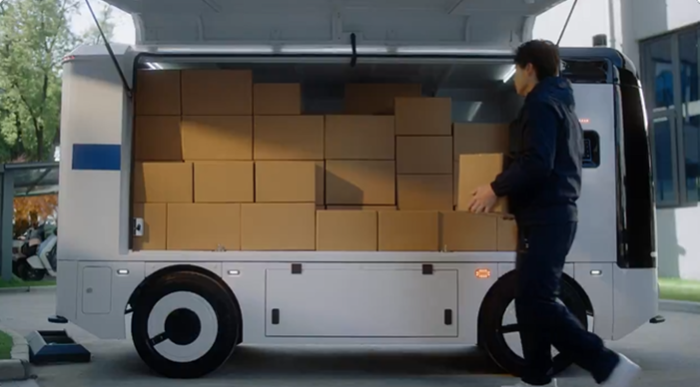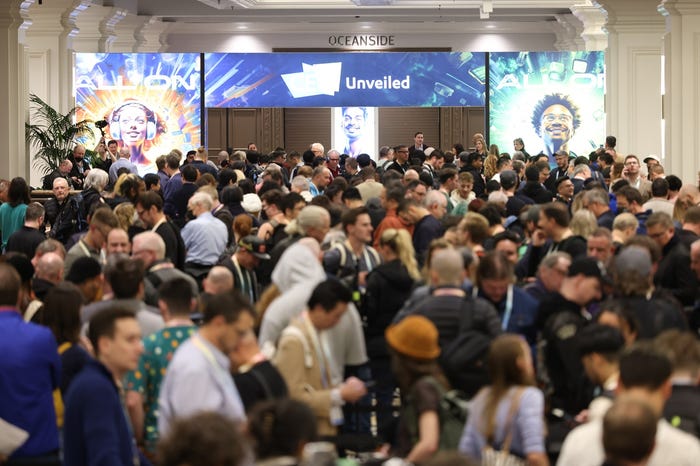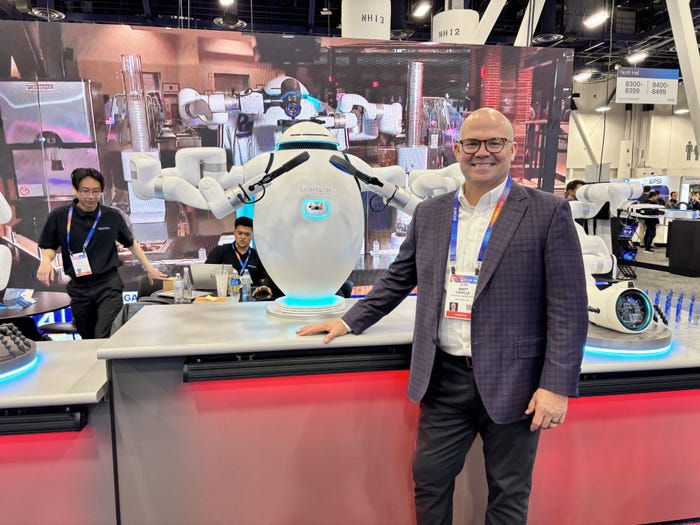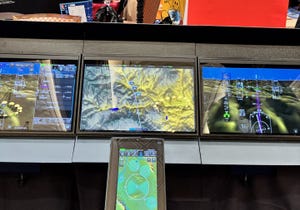Most Read This Week: Neuralink Patient Plays MarioKart with His Mind
Also inside, Amazon expands self-driving taxi testing, Musk orders self-driving demos for all new Teslas
.png?width=1280&auto=webp&quality=95&format=jpg&disable=upscale)
Here are the most-read stories in IoT World Today this week:
Neuralink Patient Plays Mario Kart with His Mind
Neuralink has released a video update showing the first patient to receive its brain-computer implant playing Mario Kart using only his thoughts.
Noland Arbaugh, a 29-year-old quadriplegic person who lost his mobility in a diving accident, said the implant has so far been “life-changing”.
"This is going to change the world,” Arbaugh said at the Neuralink meeting.
Arbaugh also became the first person to post a tweet using only their thoughts.
''Twitter banned me because they thought I was a bot, and @X and @elonmusk reinstated me because I am,'' he wrote.
Read more about Neuralink’s update >>>
Amazon Expands Zoox Self-Driving Taxi Testing
Amazon is expanding operations of its self-driving arm, Zoox.
The company has been testing its purpose-built autonomous vehicle (AV) in Las Vegas, Nevada, and Foster City, California since last year and is now upping the ante as it builds towards a commercial launch.
Zoox is expanding the test area in Las Vegas its AV can drive in, stretching to around five miles and incorporating a variety of routes from the company’s office in the city to the south end of the Strip.
Zoox is also increasing the speed of its vehicles and testing them in more challenging circumstances, including in poor weather and at night-time.
A blog post on its website read: “We’ll continue to be measured and thoughtful in our approach to commercialization. These critical updates bring us closer to safely and confidently offering Zoox to the public. We can’t wait for you to experience the first ride later this year.”
Read more details of the project >>>
Musk Orders Full Self-Driving Demos for All New Teslas
Elon Musk has confirmed that all new compatible Teslas bought in the U.S. will now come with free access to Full Self Driving (FSD).
Tesla’s current FSD-capable vehicles are the Model S, Model X and Model Y. The Cybertruck and revised Model 3 cannot run the software.
FSD provides Level 2-rated automation, as defined by the Society of Automotive Engineers, meaning that steering, braking and acceleration can all be automated, but driver attention is still required.
The move is part of Tesla’s push to give the technology more exposure and was referenced in a leaked internal email, in which Musk instructed employees: “Going forward, it is mandatory in North America to install and activate FSD V12.3.1 and take customers on a short test ride before handing over the car.”
Find out more about the initiative >>>
Maryland Bridge Collapse Raises Automobile Supply Chain Concerns
Late Monday night a cargo ship hit a support beam on the Francis Scott Key Bridge plunging it and everyone on it into the waters below. An investigation into the crash is currently underway, and officials are still searching for victims.
IoT World Today spoke to industry experts to get their opinions on the impact of the incident, and what businesses can learn.
Baltimore is the No. 1 automobile port in the U.S., and the automobile supply chain is already seeing particular hits, with Ford and GM already diverting shipments.
“Indications are that the most immediate and direct impact of this incident will be in the automotive sector," said Josh Builta, Omdia's senior research director of AI and IoT. "However, it also highlights how quickly such unanticipated incidents can put sudden constraints on supply chains.”
Read more about the incident >>>
Saudi Arabia Updates Humanoid Robot to ‘Reflect National Values’
Saudi Arabia has given its first humanoid robot, Sara, conversational capabilities using generative AI. However, in keeping with the nation’s societal norms, the robot cannot discuss topics such as sex and politics.
Developed by Riyadh-based QSS AI & Robots, Sara is said to be the first humanoid robot designed and manufactured in Saudi Arabia.
QSS said Sara is designed to “reflect the national values” of Saudi Arabia, which includes being unable to discuss topics such as sex or politics, which are off-limits for public discourse in the country.
“Born from the innovative spirit of Saudi Arabia’s robotics community, Sara embodies a blend of cutting-edge technology and cultural significance,” the company’s website said. “Standing as a testament to the nation’s commitment to technological advancement, Sara is designed to push the boundaries of robotics and artificial intelligence.”
About the Author
You May Also Like








